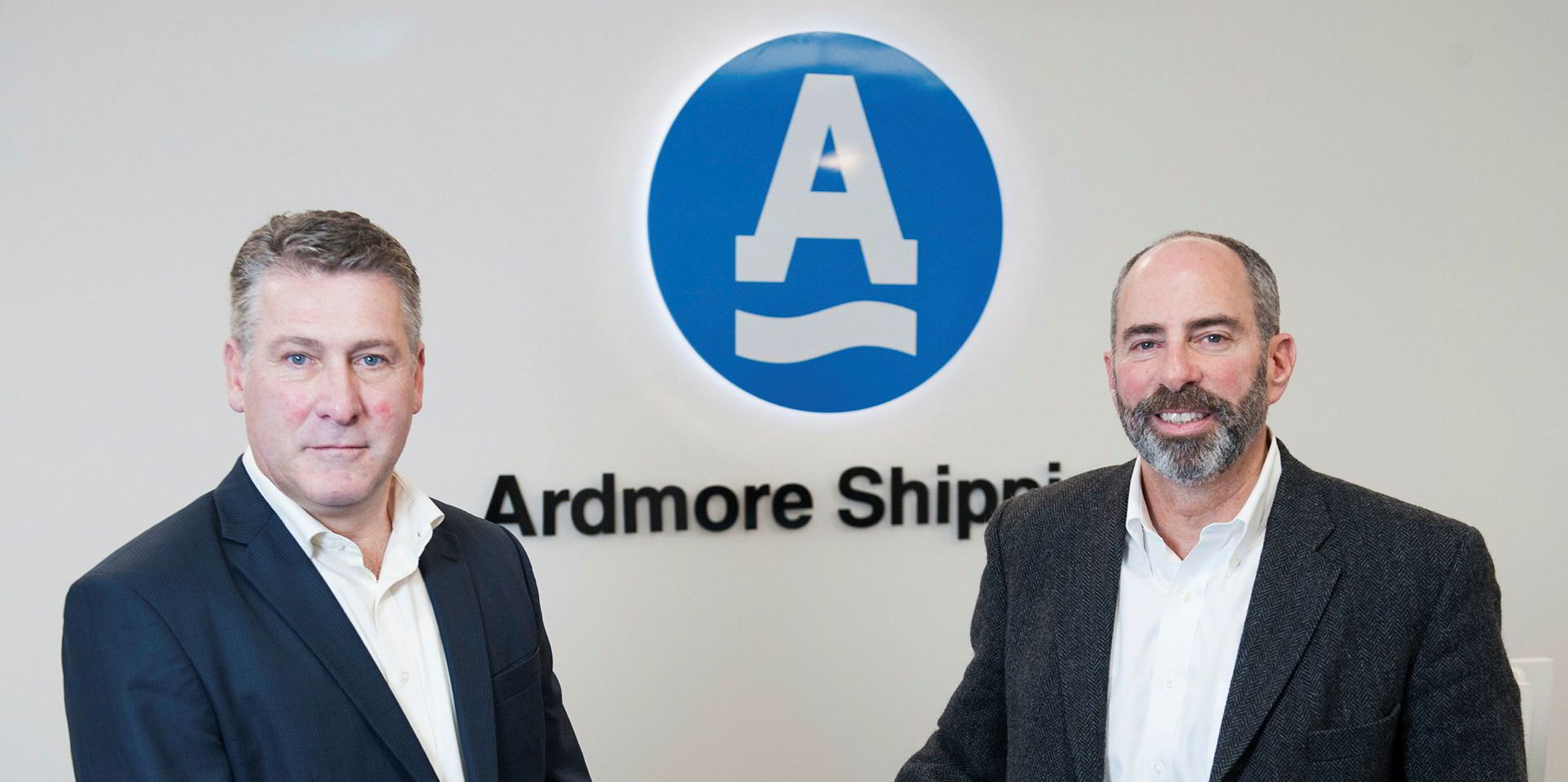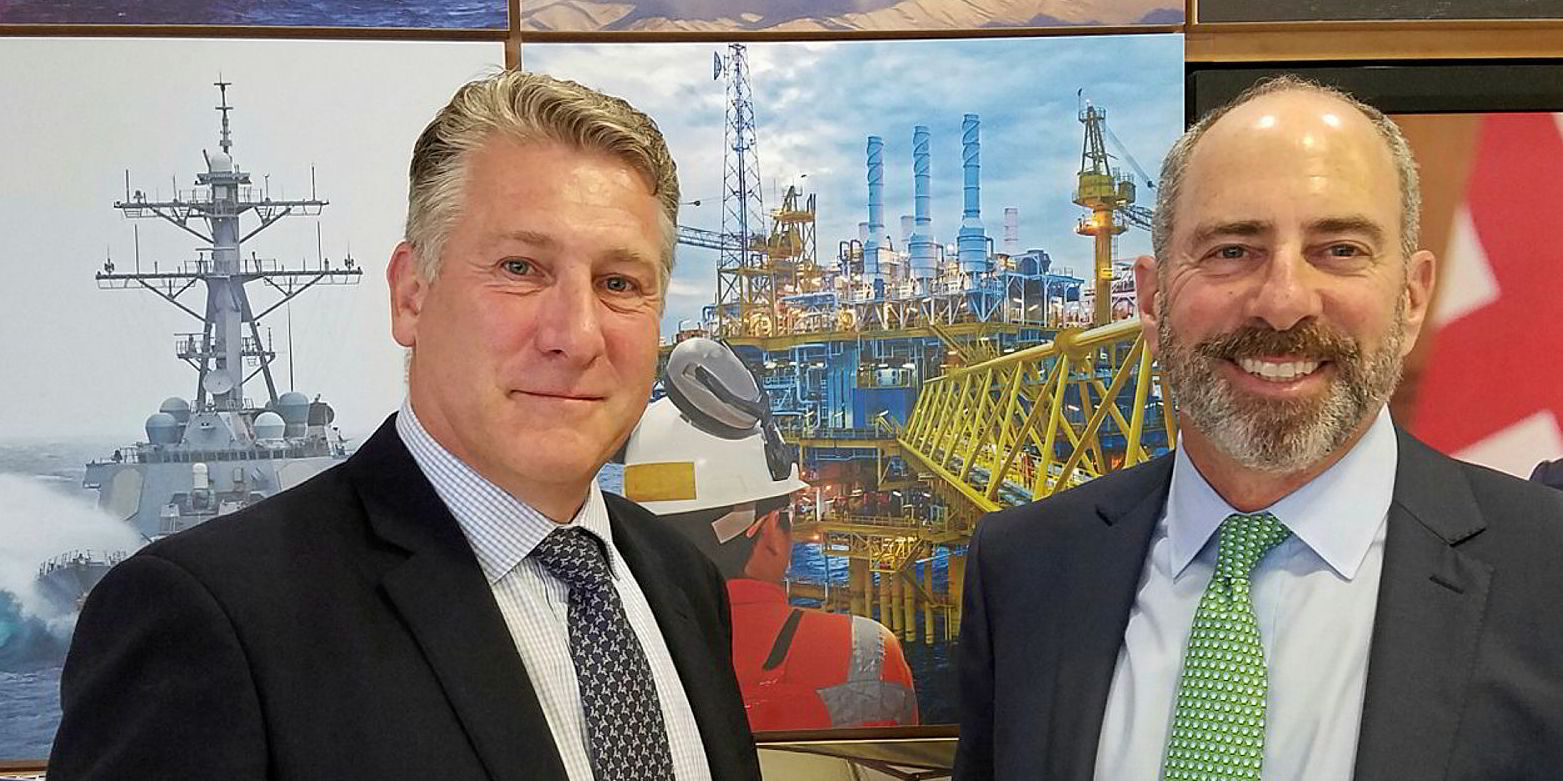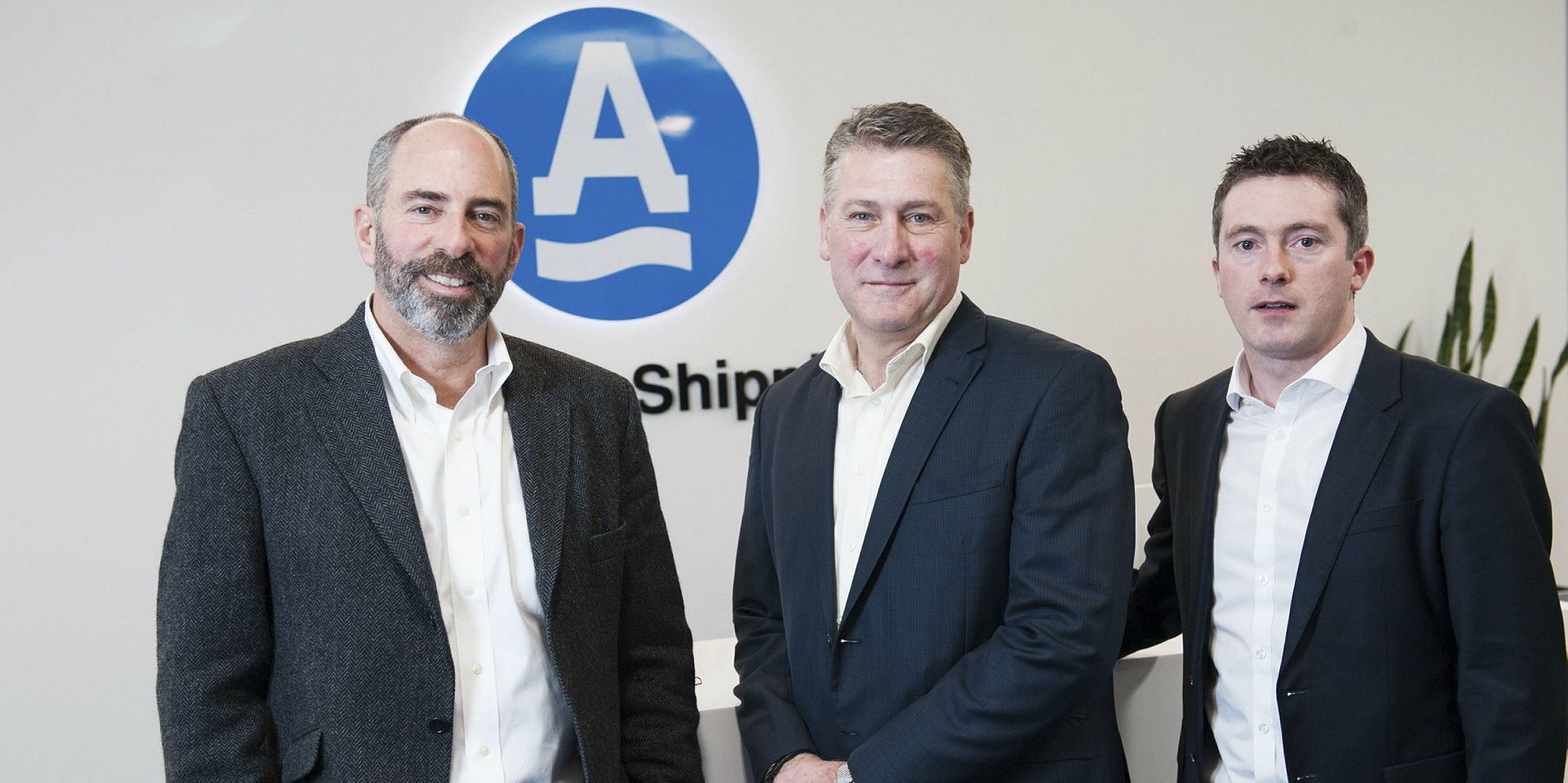Ardmore Shipping could spend millions putting a sensor on every piece of equipment on its fleet, but the tanker owner just is not interested.
"We're not really interested in big data, we're interested in little data," said Ardmore chief executive Anthony Gurnee. "We don't have to collect a lot of data to optimise what we do. When you start going down the big data route, you're cheapening the value of the sea staff, the guys aboard the ships."
Gurnee and chief operations officer Mark Cameron spoke with TradeWinds exclusively at Inmarsat's headquarters in London during London International Shipping Week.
But despite being at a conference on digitalising shipping, neither Gurnee nor Cameron seemed interested in being on the bleeding edge of technology.
'More noise than signal'
They said Ardmore had worked on technology projects before, but much of the world of shipping tech is still theoretical. Cameron said reports of more data being collected this year than ever before would result in more noise than signal.
"At somewhere along the line, that's insane," Cameron said. "What's it going to tell you? Whatever you want it to tell you."
Much of the discussion at London International Shipping Week focused on the IMO 2030 and IMO 2050 regulations, which require the industry to cut carbon emissions by 40% and total greenhouse gas emissions by 50%, respectively.
Many shipowners and other industry figures view fleet optimisation as the way to comply with at least the 2030 regulations, with some claiming it can be done with existing technology.
Gurnee said slow steaming would be a way forward, with ships simply being designed to go slower and optimising fuel efficiency there. He also said he trusts his seafarers.
"What we observe is companies spending millions and millions on big data projects and nothing comes of it. That gives companies like us a competitive edge, because we don't waste the money," Gurnee said.
"To be honest you don't have to collect data from every piece of machinery on the ship. It takes the authority away from the people who are best able to make the decisions."






